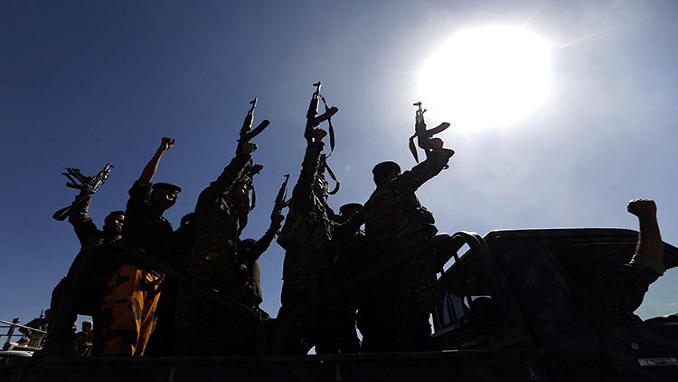This week the Biden administration suspended sanctions on Yemen’s Houthis, the rebel group backed by Iran, for a month until February 26 — a move welcomed by the United Nations and aid agencies, Voice of America reported.
Washington is reviewing the decision taken in the waning days of former President Donald Trump’s tenure to designate the Houthis as a “foreign terrorist organization.”
The United Nations and 22 aid agencies working in Yemen fear the designation could trigger a large-scale famine by choking off badly needed food and medical imports and exacerbating its already dire humanitarian crisis. Ninety percent of Yemen’s staples are imported.
The U.N. says most of Yemen’s 30 million people need some form of aid or protection, with more than 13 million Yemenis facing acute food insecurity.
U.N. officials have expressed concern the designation could impact peace talks to end the conflict, involving Gulf powerbrokers Saudi Arabia and the United Arab Emirates.
Helen Lackner, a Yemen researcher currently at the University of London’s SOAS Middle East Institute, hopes the U.S. will press for a new U.N. Security Council resolution for Yemen to replace 2216. That resolution, passed in April 2015, essentially calls for the Houthis to surrender first and then for peace talks to begin.
“The Biden administration could start on a new footing by sponsoring a resolution which would make negotiations possible,” Lackner said. “Negotiations on (resolution) 2216 are not possible. 2216 is basically saying to the Houthis ‘withdraw, accept complete defeat and go back to where you were in 2014.’ Why on earth should they do that given all the gains they’ve made in the last 6 years?
“I’m not a supporter of the Houthis. To have a new resolution that is focused on the reality of the balance of power in Yemen, which maybe addresses the concerns of the Saudis. These things could be a big step forward towards a solution to the Yemen situation,” she said.
Analyst Hamdan Al Shehri believes the Houthis were likely behind recent air attacks on the Saudi capital, Riyadh.
“Everyone knows that the Houthis, backed by Iran, are the ones who carry out such terrorist acts and use ballistic missiles and drones,” he told the Saudi Arab News daily. “They also tried to get on the new U.S. administration’s good side by denying what happened in the Kingdom. But everyone knows who is responsible for these actions.”
The article, “Are Yemen’s Iran-backed Houthis firing warning shots across Biden administration’s bows?” alleges the strikes “may not be routine tactical operations in a low-intensity conflict but rather reflective of a larger strategic decision by Iran to put President Joe Biden’s foreign-policy team on notice.”
The Houthis, a Zaydi Shi’ite movement, have been fighting Yemen’s Sunni Muslim-majority government since 2004. They took control of the capital, Sana’a, in September 2014 and continued on towards Aden, Yemen’s largest city. They represent a third of the population and say they are fighting a corrupt system. In response to Houthi advances, Saudi Arabia and other Arab states launched a military campaign in March 2015 which continues today.
